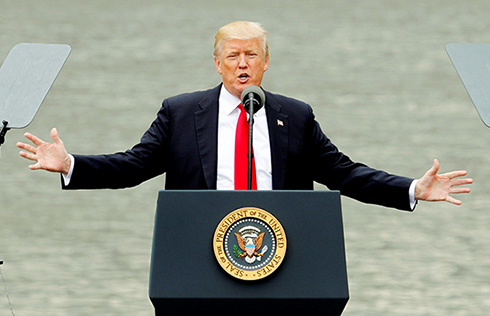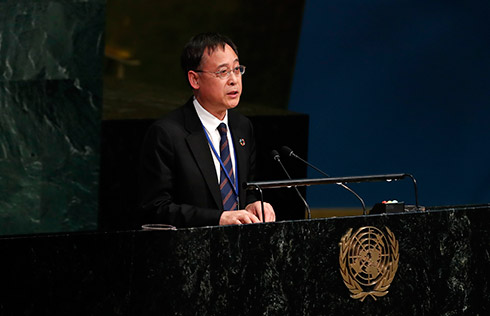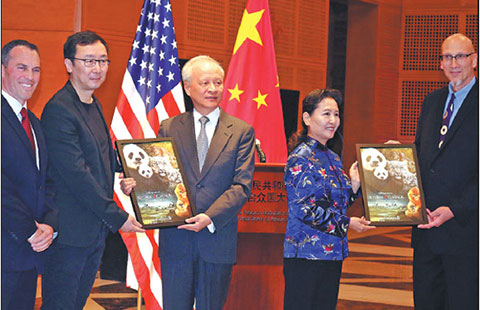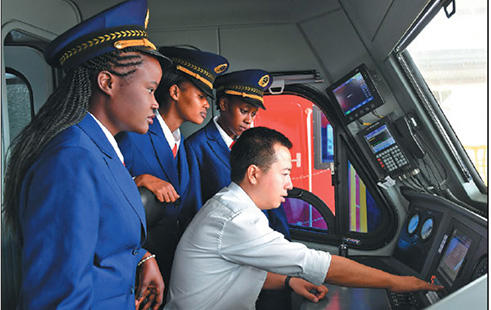Economic cooperation between China, CEE on fast track
BEIJING -- After a journey of 17 days covering more than 10,000 km, a freight train packed with small commodities produced in China finally arrived at its destination in Latvia's capital Riga.
"Riga is the destination of the train, but not of these commodities. After the arrival, they will be distributed to different eastern European or Scandinavian countries within one to three days," said Xiong Tao, deputy mayor of Yiwu, a Chinese manufacturing hub where the small wares, mainly decorative items and souvenirs, were made.
A ceremony was held to mark the arrival of the train, the first running from Yiwu to Riga, on Friday.
Latvia was the first in the Baltic region to launch the trans-Eurasia railway operation, which connects it with the world's second largest economy.
In fact, 40 direct rail freight routes have been established between China and Europe so far, carrying goods worth billions of dollars each year. Yiwu, as the end of six such railway lines, is the busiest city.
The routes, like the ancient Silk Road over two thousand years ago, serve as a bridge between China and countries of Central and Eastern Europe (CEE) as the world's second largest economy seeks to strengthen trade partnerships and create new growth points amid sluggish global trade.
When the train from Yiwu was greeted by local officials and businessmen in the Central Station of Riga, Chinese Premier Li Keqiang was drawing a grand blueprint for the cooperation of the two sides at a high-level meeting held miles away.
"We should actively promote free trade and facilitate investment, open markets wider to each other, deepen regional economic cooperation and oppose trade and investment protectionism to give ourselves growth impetus while contributing to the world economic recovery," Li said while addressing the Sixth China and CEE Countries Economic and Trade Forum.
The visiting premier proposed to promote trade and connectivity, step up production capacity and tourism cooperation, and explore innovative ways of financial cooperation.
"The proposals are practical and targeted, taking the two sides' comparative advantages and room to improve governmental cooperation into consideration," said Xu Mingqi, a researcher with Shanghai Academy of Social Sciences.
Chinese firms with rich experience in contract engineering can help CEE countries to enhance their infrastructure, Xu said, adding that trade facilitation measures can help boost China's exports of its industrial products and CEE countries' exports of high-quality farm produce.




















